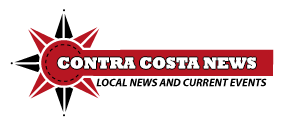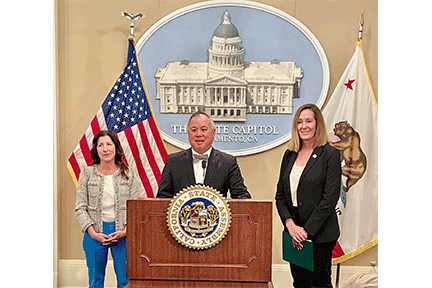SACRAMENTO – The Board of Equalization (BOE) would be dissolved under a constitutional amendment introduced by Assemblymembers Phil Ting (D-San Francisco), Jacqui Irwin (D-Thousand Oaks), and Cottie Petrie-Norris (D-Irvine).
ACA 11 would remove the BOE from the state constitution and provide the Legislature the authority to move their remaining duties to the California Department of Tax and Fee Administration (CDTFA) and the Office of Tax Appeals (OTA).
“When the BOE was first established in 1879 one of its primary responsibilities was to assess inter-county railroad property, a role that is now obsolete. Today, with the board’s limited duties, California can no longer justify the BOE’s expense or need as it does not provide a significant enough benefit to taxpayers,” said Ting. “ACA 11 ensures that California removes an unneeded elected body while ensuring that taxpayers can still resolve their tax cases with CDTFA and OTA.”
In 2017, Assemblymember Ting led the efforts to reduce BOE’s powers to their limited state constitutional powers after audits found the BOE mishandled millions of dollars, redirected nearly 100 tax audit and compliance staff to unrelated duties such as parking lot duty, and requesting additional staff despite having 600 vacancies. The Taxpayer Transparency and Fairness Act of 2017 transferred those duties and staff to the newly-created CDTFA and OTA.
“Since 2017, we have seen that the Board of Equalization is unnecessary and that its former duties can be carried out more effectively and efficiently by CDTFA and OTA,” said Assemblymember Irwin. “California no longer needs three separate tax agencies. The BOE’s remaining authority is very limited and, in fact, the BOE relies on CDTFA to carry out many of its administrative duties. In the interest of good government and efficiency, it is time to allow the voters to remove this vestige of the 19th century.”
“The Board of Equalization has been waste of taxpayer dollars for too long. As the Chair of the Accountability and Administrative Review Committee, I’m very focused on working to build public trust in government and ensure we use taxpayer dollars wisely,” said Assemblymember Petrie-Norris. “I’m proud to be working with my colleagues on this long-overdue effort.”
ACA 11 requires a two-thirds vote and if passed, will put the measure in front of voters in 2024.
A recording of the press conference is available here.
Editors Note: About the California Board of Equalization
In 1879, the California State Board of Equalization (BOE) was established under the California Constitution to regulate county assessment practices, equalize county assessment ratios, and assess properties of intercounty railroads. In subsequent constitutional and statutory amendments, the Board was directed to administer tax, fee, and appellate programs to support state and local government.
Today, the BOE focuses on its Constitutional responsibilities: Property Tax, Alcoholic Beverage Tax, and Tax on Insurers.
The Property Tax Program is concentrated in the following areas:
- Valuation of state-assessed public utility and railroad property. The total value for the state-assessed roll is in excess of $110.5 billion annually.
- Administration of the Private Rail Car Tax program and collection of taxes. The total tax is in excess of $10.5 million annually.
- Mapping and assigning tax rate area numbers to each geographical area in the state with a different distribution of revenues among taxing jurisdictions.
- Co-administration of the welfare exemption with County Assessors.
- Administration of the Legal Entity Ownership Program.
- Providing guidance to County Assessors to promote uniformity and consistency in assessment throughout the state; and
- Conducting assessment practices surveys (compliance audits) to ensure County Assessors’ practices and procedures comply with all statutory and regulatory provisions, utilizing proper appraisal practices. County Assessors produce an assessment roll for locally assessed property in each of the 58 California counties. The total value for the locally assessed roll exceeds $6.4 trillion.
In addition, the BOE is constitutionally responsible for the Alcoholic Beverage Tax and Tax on Insurers. By way of agreement, the California Department of Tax and Fee Administration (CDTFA), performs billing and audit services for those programs.
Members of the Board meet monthly in Sacramento to adopt regulations, perform ministerial functions, and set policy for the direction of BOE staff with regard to the foregoing programs. The Board also sets the taxable value of property owned by California’s public utilities and railroads and the assessable value of private railroad cars operated in California. The Board hears and decides specified taxpayer appeals related to the Property Tax, Alcoholic Beverage Tax, and Tax on Insurers Programs. The Board appoints an Executive Director to head the agency and manage the activities of BOE staff.


1 comment
Where current BOE functions should be moved is a matter of debate, but the overall concept of getting rid of at least ONE of California’s bloated state bureaucracies is a sound one. Expect pushback with all kinds of hot air about why this would be a bad idea: bureaucratic empires always fight to continue their existence no matter how unnecessary they are.
Comments are closed.